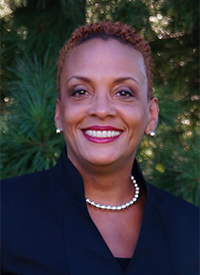***This piece is part of our content presented at Inclusive City 2020. On Oct. 28, 2020, from the stage of the Madam Walker Legacy Center, we revealed plans to dismantle systemic racism in Central Indiana at Inclusive City 2020. Learn more about that event here.***
 from Pamela Ross
from Pamela Ross
Vice-President of Opportunity, Equity, & Inclusion
Inside all of us, and inside all of the organizations we lead or belong to, it’s the same. The power to change, to become anti-racist, is not in some law we’ll pass, or some set of guidelines we’ll follow, or even in some grant we’ll make.
The power to change the way we work as organizations—and as people—comes from us. It depends on the actions we take each and every day and commit to taking moving forward. But where to begin?
Now: Do I have some suggestions for where we can start? Yes.
Yes, I do, for starters:
- If you believe in equity and inclusion but are an all-White institution, you need to change that.
- If you believe in equity and inclusion—but you have no leaders of color, you need to change that.
- If you are an institution that predominately serves people of color, but your staff and board do not represent the community you serve, you need to change that.
“It’s a process, not an endpoint.”
This one is huge—and we’ve already talked about it a bit—but:
- If you are one of the many institutions of power in this community that can actually make a real change for all, but you have no pathway to authentically listen to resident voices—you need to change that.
- If you are a hiring manager or in human resources and struggle to find diversity in your applicants and new hires—ask yourself ‘why’ and know that you need to change that.
- If you are an institution that has not examined your policies and practices through the lens of access, inclusion and racial equity—you need to change that and institutionalize the work in perpetuity.
And here I just want to say: Make it part of your institution, yes, but you’ve got to do more than just create a document. You’ve got to make it part of your day-to-day and part of your culture. It’s a process, not an endpoint.
- If your organization has a diversity, equity and inclusion position, but their power is stifled when the work doesn’t feel good or “right”—you need to change that.
Empower them to make REAL change in your work; otherwise, they are merely tokens.
- If you don’t believe Black and Brown people continue to be unfairly held back due to racist systems—you must get informed and recognize yourself as part of the problem.
And last, but certainly not least:
- If you know racist systems exist and want to see equality for all—be an advocate. Use your POWER and VOICE to make a real change.
We can use the power we have, and the power we’re building, for good. Just so long as we’re intentional about it.
UP NEXT: Corporate and civic leaders pledge to take on systemic racism at their companies, across systems they represent and in their personal lives






Leave A Comment